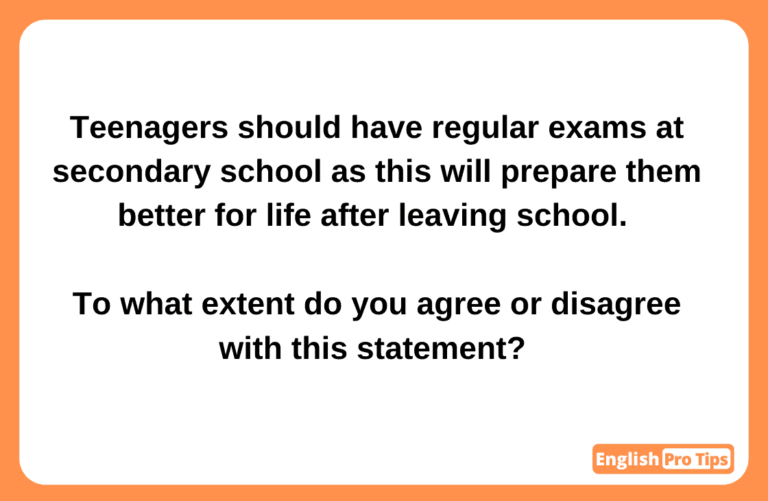Some people think that regular exams at secondary school are an essential part of education and they develop important skills for further life and work. However, there is debate as to whether exams are necessary for further daily life of students. I would argue that they do.
With regards to work, I think that exams at secondary school develop such skills and competencies like time management, responsibility and stress resistance. These skills might be developed during exam preparation, because students have to complete their preparation until the certain date and be confident if they take an oral exam. Thus, they need to manage their time really carefully and control themselves. As a result, if students are taught to meet deadlines at secondary school through taking exams, they are more successful and responsible at work.
Also, a lot of exams at secondary school might be useful for daily life because they provide general knowledge about most important subjects like Math, Physics and Chemistry. For example, you need to know how multiply and divide numbers when you do shopping. If you want to get the right change at the supermarket, you need to know addition and subtraction. Also Physics can be useful in plenty of different situations. For instance, everybody knows rules how to use electricity safely (you have to turn off the switch and dry your hands before changing the lamp to avoid electric shock). And even Chemistry might be useful in rare occasions, because when you suffer from heartburn, you can just drink the solution of bicarbonate of soda and neutralization reaction will make you feel better. Therefore, frequent exams help students to obtain basic knowledge to handle with variety of life situations.
In terms of disadvantages of regular exams at secondary school, many people believe that skills which people learn through passing exams are completely useless at work and in daily life. For example, students usually try to remember a huge amount of information in extremely short time in order to prepare for exams. This way they only develop their short-term memory, but not obtain any new knowledge, because they tend to forget almost everything they learnt over the following week. In most cases, this skill is not appropriate for real life and work. However, I would argue that this is a matter of how students use their preparation time. There is a small part of students who start to prepare for exams in advance and retain knowledge for a long period of time.
In conclusion, I would like to reiterate that frequent exams at secondary school might be useless and monotonous for lazy students with irresponsible attitude to studying, but for students who spend enough time preparing for exams they definitely bring benefits.




 (2 votes, average: 8.00 out of 9)
(2 votes, average: 8.00 out of 9)
Comments
Hey Vladislav!
Impressive attempt.
Very impressive essay Vladislav ????
+ Clear introduction with your position clearly highlighted
+ Advanced structure (70/30 + rebuttal)
+ Very well developed paragraphs: great use of examples
+ Clear topic sentences
+ Lots of good linking words
+ Very good command of grammar and vocabulary
– Remember to use “the” with superlatives: “…they provide general knowledge about the most important subjects like Math”
– You don’t need to put school subjects in capital letters.
– “For example, you need to know how to multiply” (remember, “know how to…”
– You sometimes forget the indefinite article (a/an): “a huge amount of information in an extremely short time”
If this feedback helped you, please take the time to give some other member feedback on their writing- they will appreciate it ????